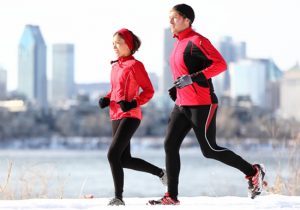Tag Archives: respiratory diseases
6 things to change when exercising in the winter (part 1)

November and December are when the weather turns chilly and it gets colder when it actually gets winter, especially in the morning. So, your fitness routine needs to change too.
- Exercise later in the morning
In late autumn, when the weather changes to winter, the morning is often colder, and early in the morning there can be fog. Moreover, in the early morning, the plants do not photosynthesize, so the amount of carbon released by the tree is still high in the air. In autumn, winter, it is late morning so the tree’s photosynthesis is late.

Therefore, if you go to the gym early in the morning, it will be more harmful to health. Wait for the morning to clear, the amount of oxygen in the air more than carbon will be better for health, especially for people suffering from respiratory diseases.
Wearing warm enough, doing exercises in a cool place and drinking enough water … are things to keep in mind when exercising in the winter.
- Boot longer
Whether you are exercising in any weather, you need to start the body first. But when it’s cold, you should do this a little longer as your body in winter will be more inert than hot weather.
Warming up before exercise will help release mucus from the joints, thus reducing injury. If exercising in cold weather, make it a little longer and increase the intensity slower than summer.

In particular, in cold weather, you should not go barefoot to exercise because if your feet are cold, your body will be susceptible to colds, prone to cold hands and feet, arthritis and lead to many other diseases.
- Pay attention to breathing exercises
Cold air is one of the reasons that makes you susceptible to sore throat and respiratory diseases. Therefore, during exercise, if you do not pay attention, you will easily get these diseases.
Learn to breathe through your stomach (take a deep breath so that the air gets through your nose through the nose and then exhale slowly). During exercise, you should avoid opening your mouth so that air does not enter the abdomen through the trachea, thus avoiding the risk of sore throat and other respiratory diseases.

